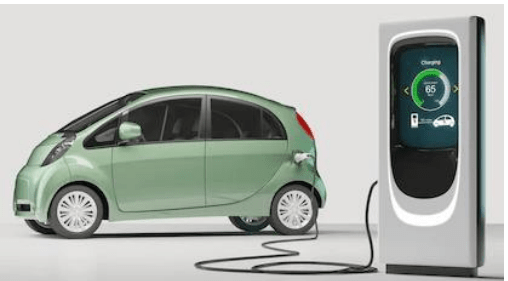
After the purchase of an EV, EV owners generally have doubts and misconceptions about the vehicle charging time. EV charging times can vary due to multiple factors; these factors are discussed here.

After the purchase of an EV, EV owners generally have doubts and misconceptions about the vehicle charging time. EV charging times can vary due to multiple factors; these factors are discussed here.
Battery size: EVs are equipped with different battery capacities (measured in kWh) ranging from 26 kWh to 107 kWh. If it is charged with an AC charger (3.3 KW / 7.4 KW / 11 KW / 22 KW), then it will need more hours to charge. If a 30 kWh battery is charged with a 3.3 KW AC portable EV charger, then it will take approx. 9–10 hours to charge from 10% to 100%. The same battery, if it is charged with a 60 KW DC fast charger, will take < 1 hr. to reach full charge.
On-Board AC Charger Capacity: How much of a charge can vehicle accept at once? For AC charging, vehicle’s maximum charge rate is static, so it won’t save time by charging battery at a more powerful charging station. If 7.4KW On-Board AC Charger equipped vehicle is charged with 22KW Charger, then vehicle will only accept the charging current as per 7.4KW capacity of On-board charger. In this scenario, 22KW charger will be oversized and not useful for speed up the charging. EV won’t charge any faster than 7.4kW.
Battery empty or full: If Battery is with 20% charged state, then it will take longer time to charge. When Battery charge state is 75% then it will take less time than earlier case.
The Power of Charging Station: Charging time depends on the maximum charging rate of the charging station used. Example: The 58 kWh battery capacity charging time differs between 30 KW, 60 KW, and 120 KW charging stations. EV cars can be charged with DC voltage at the charging station’s maximum power rate.
Battery Cell Voltage and Temperature Balancing: When the battery charge state is reached to 80%–90%, the BMS will accept a small level of charging current; the BMS will then slow down the charging, and the charging current will be used to balance the Li-Ion battery's voltage and temperature level to equality. After a 90% charge state, it will take more time to charge. It is done to increase the life of the battery and avoid overcharging.
The ambient Temperature: Lower or higher ambient temperatures can lengthen the charging time. High temperatures can affect the electric car’s thermal management systems, affecting its efficiency. In Hot conditions, the EV Car’s Battery Management System (BMS) used to curtail down the level of charging current for safeguarding battery health. It increases the charging time.
Other issues: If the charger Hardware & Software does the nuisance malfunctioning, then it will take longer time to connect the vehicle to charger. Secondly if the charging Gun is not properly connected to the vehicle, then in this case charging will not start. If there are connectivity issues due to an Internet network failure, then the vehicle will take time to connect to the charger through the mobile application. If there is a grounding or earthing issue in this case, the vehicle will not connect to the charger, which creates a problem for charging.
Moreover, EV car OEMs have charging-specific guidelines that must be followed step-by-step; lapses in guidelines or procedure adherence will create troubles in connecting the vehicle to the charger, resulting in delayed charging.